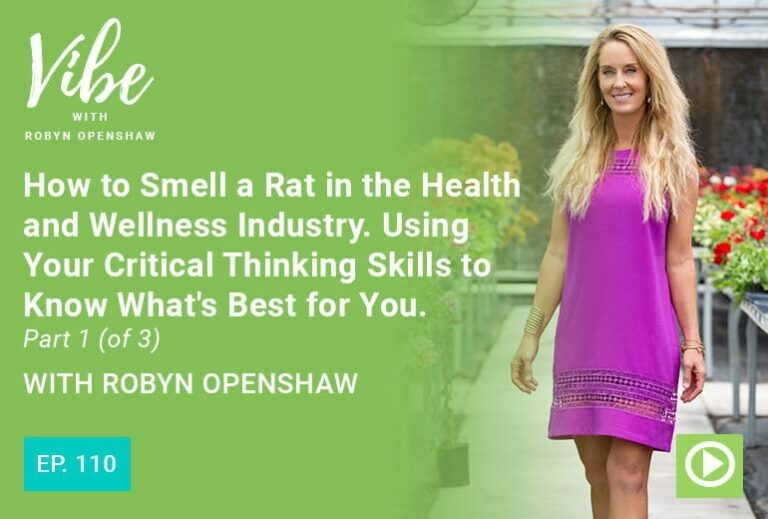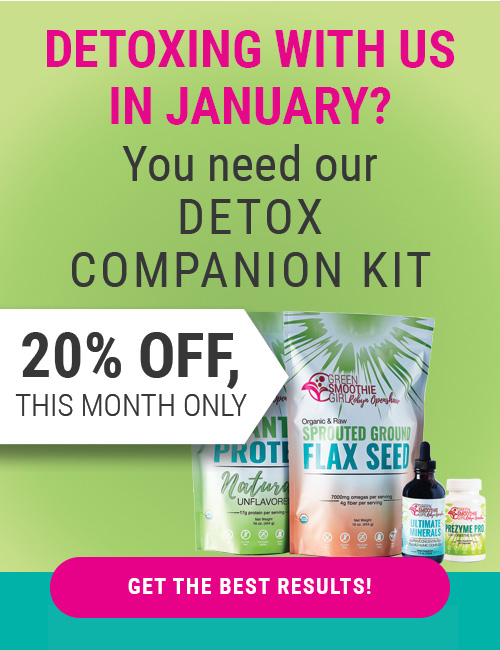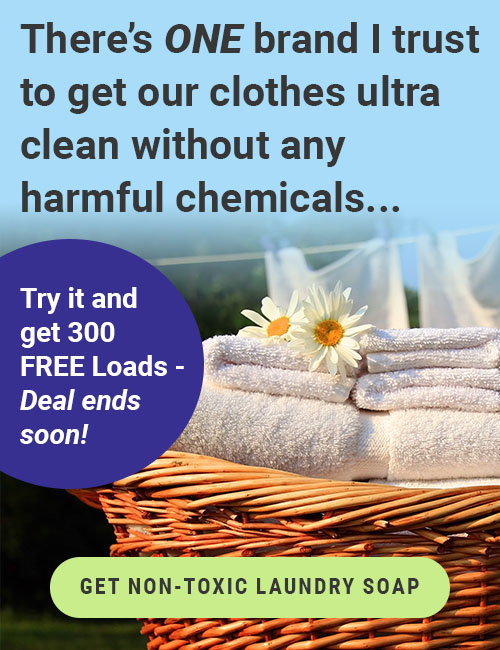Ep. 110: How to Smell a Rat in the Health and Wellness Industry: Using Your Critical Thinking Skills to Know What’s Best for You, Part 1 (of 3) with Robyn Openshaw

Podcast: Play in new window
This episode (and the next couple to follow) is a real treasure, as we get a glimpse into Robyn’s brain and personal experience on how she approaches all the many voices, fads, and information that flood the health and wellness industry. How is one to know who to listen to? What to buy? What diet is best to follow? What doctor to go to? If you’ve ever wondered any of these questions, you’re going to love this little series. Robyn shares with us how to evaluate the science and evidence out there. How to ask the right kinds of questions. How to know who and what is really legit. And how to trust your gut and make informed decisions on what is truly best for you. In this world of constant and often conflicting information, especially within the health and wellness industry, it’s good to have a voice you can rely on to help you navigate through it all. Robyn Openshaw is such a voice. She is a voice of reason, compassion and understanding. She has spent thousands of hours researching and reading countless books, articles and studies, talked with hundreds of experts, tried and tested all kinds of products, and has many years of experience. These episodes will empower you to know what to look for, who to trust and how to sort through all the information that’s out there to find what is best for you.
LINKS AND RESOURCES:
Get the 9 Questions to ask your hormone doctor: CLICK HERE
Sign up for the Detox Masterclass here: CLICK HERE
TRANSCRIPT:
Hey there. It’s Robyn Openshaw. Welcome back to Vibe. I decided I wanted to talk to you about how to spot a fad in health, wellness and nutrition, and I got going on it, writing notes about the different fads I wanted to talk with you, things that I see, because I spend full time, you know, keeping an ear to the ground and researching in these areas, and I had so much to say about it, it turns out that this became a multi-part series.
I want to talk about how much stock to put in these various fads. My issue is that I think that most of the fads cause us to squirrel off in a direction that’s not going to be particularly useful to our health. We might find ourselves down a thousand bucks or down 300 bucks with the money that we spent on something and no closer to our goals when it comes to recovering our health. I’m going to go into detail in these episodes about the CBD and THC and marijuana debate. I’m going to talk about the gluten free diet and the debate about that. I’m going to talk about the fad of testing for food sensitivities, the fad of getting tested for our genetics and what we’re doing with that information, the fad of the Ketogenic diet, you know it! The fads that are arising out of being able to test for gut health in the microbiome and several more.
And I’m using this for the goal today to help you sharpen your critical thinking skills. You know that old Stephen R. Covey, “Seven Habits” thing about sharpening the saw. We are better when we take some time to sharpen our saw or in this case, our critical thinking skills. You can save a lot of money and confusion and heartache by learning better skills at seeing fads and fiction and being able to separate them from the things that matter most in your health.
There are a lot of voices out there and today I’m letting you into my brain on how I decide to purchase something for my health, when is it worth the money or for one of my children’s health, and how I decide not to spend money, even though the marketing may be really slick and really convincing. What criteria do we pay attention to? What criteria have I come to conclude doesn’t really matter, and so I try to filter it out? Even though a lot of people are swayed by some of those types of information that I’ve trained myself not to be swayed by.
I’m going to talk about developing your decision making skills through a discussion about fads in nutrition and health. So we’re going to talk about the human genome project and genetics microbiome. The concept of bio-diversity, which is really trending right now,. The fasting fad. The fad of, there’s a supplement for everything. We’re going to talk about targeted supplement protocols and functional medicine in general. All of these are very hot topics and in fact they are trends in the world of health and wellness.
Now just because they’re trends or fads doesn’t mean there’s no value there, but what I want to talk to you about today is how I wait and how I evaluate information, how much credibility I give different types of opinions or information that guide me in making decisions not only about my own health and about the health of my four children, but also and what I’m willing to go out and share with you.
Because it’s become my career to share information with you on various platforms including this podcast and I take that responsibility really seriously, So I like to do my homework in great detail. Usually I don’t talk to you about a subject until I’ve been studying it for quite a long time, but I think that the avalanche of information, the confusion that most of us feel is why there are wellness influencers out there on the Internet that you follow. I’m talking about my career. For instance, you know, podcasters, book authors, Bloggers, social media influencers. You probably follow a handful of us. You might even follow dozens of us. I personally am all of those things. I’m a blogger. I’m a podcaster. I’m a book author, Social Media Influencer, and it’s not really a career that you plan. It’s not like there’s an advanced degree in some University on how to be an influencer, Right?
But all day, every day, 365 days a year, people write me. They ask for advice, they ask me what I think of a certain product they’re thinking of buying and most of all they ask my opinion about decisions they need to make about their health. Rarely does a day go by that I don’t have a conversation with a stage four cancer patient for instance, who’s terrified and trying to decide which course of action to take and that’s because I’ve blogged about a worldwide tour I did of clinics that treat cancer in an alternative way, to learn what they do to learn whether it works or not. And I blogged over 200 times about cancer on the GreenSmoothieGirl.com website and people find those and they come to me for advice about that. That’s just an example.
People write me about a lot of different issues. People search on, you know, in that case, holistic cancer treatment, or whatever it is, and many of them land on my writings and on my videos, some of them that I did with patients and doctors during that tour. So that’s just an example, a window into my world of what I do every day.
Eventually pretty quickly, actually in the decade before this one, I had to train others to help me answer questions because I couldn’t do it all. I could not get to all the questions, not enough hours in the day, so I actually cannot vet all the questions that people send me about products and things like that. They want to know what I think of this product or that product. So if you write GreenSmoothieGirl, you’ll get an autoresponder saying “Robyn cannot diagnose, treat or prescribe.” It’s outside my scope as I’m sure you can understand, and not only do I care about the ethics of that, the fact that I’m not your doctor, I don’t have access to your medical charts and your history. I don’t have specific training in medical school. I care that I do not do any harm by making personalized recommendations to people. I would, if I cross that line, I would jeopardize what I can do to serve you. If I get outside my lane and I start giving people medical advice.
But I’ve been thinking since obviously we get asked a lot of personal healthcare advice. I’ve been asking myself how can I help people besides telling them to go read the probably 1000 books and several thousand published studies I’ve read in my career. What can I help you with? The cliffs notes version, since you’re not going to like it if I tell you to go have hundreds of detailed conversations with health and wellness researchers and clinicians, you know, the folks that I’ve been interviewing over the last 20 years. I mean that would be very daunting for most people, like 99 point nine percent of people and that’s why I have the job that I do because I’ve put in the 10,000 hours.
I’m a bit of a savant. I was having a conversation with my boyfriend this weekend about macro economics and finance and how I’m frustrated that my brain will not retain things about investing and about finance. I’m probably maybe a little bit above in knowledge level where the average person is, but I wish that I collected information like I do, I’m constantly collecting statistics and knowledge about health nutrition, illness, like seven days a week, all day every day.
If I’m working out, I’m generally listening to a health and wellness podcast. If I’m reading, it’s generally not fiction. It’s one of the stack of health and wellness books next to my bed. I’m on vacation, that’s what I’m doing. I mean, I read “How Not to Die” by Michael Greger on my 50th birthday on a beach. So the intention is that my brain be an international treasure by the time that I die because for some reason I remember an insane amount of detail and data about those specific topics. So short of telling you to go do all that. We both know that you aren’t likely to go do that because you need to spend your brain time studying how to be a better teacher or a nurse or a tire specialist at Costco or whatever it is you do and whatever you have specialized in, that people come to you for information.
So what can I do that will serve you short of all that? In the post information age where you can’t even drink from the fire hose, information is coming at you so fast. What can we do to sharpen up our thinking skills? I’m going to let you inside my mind and my experience the past 25 years as both a researcher and the owner of an online wellness business, and tell you how I look at products and supplements and diets and books and courses. Whatever someone is trying to sell you to help you with your health.
I think about how a cancer patient, if they’re newly diagnosed, suddenly everybody she knows wants to point her to a product, a course, a book. My sister took this and it seemed to help her. I read a book and it talked to how amazing this product is. My doctor recommends this product. It’s tough to just dig through the avalanche of information because post information age where we have trillions of words on the Internet right there on our phone and our laptop. That is new. In the 18th century, you could spend your entire life and not encounter the amount of information that right now is in one weekday edition of the New York Times. Isn’t that amazing? Let me say that again. You could sit down with the New York Times and read it on a Monday and you get more information from that than you would encounter in your entire lifetime if you’re born in the 1700’s.
So, with so much information at our fingertips, what do we focus on? How do we decide what to give our attention to and our dollars? You know that biblical scripture in Hosea where the Prophet Hosea says, “my people perish for lack of knowledge.” You know, we used to have a deficit of information and now we seem to have the opposite problem. We have so much information, we have a hard time figuring out what to pay attention to. I see people all the time buying a product or following a diet or going to a clinic for something as life threatening as cancer, since we’re using that as an example. And in my mind I think to myself, well that’s not what I would have done. And these are life and death decisions that people are making daily. So many of them come to me. So many of them come to me and tell me the money they spent and the decisions they regret making because they didn’t have a way of getting to the truth and they regret it later. I hear that all the time.
So, so what are the products that we actually invest in, of the thousands we might be exposed to, that we might be pitched on in the course of any given year? Because we’re all actually new to the information superhighway. In the timeline of history, the last 10 years where the Internet has exploded or even the last, uh, 25ish years since the Internet existed, it’s actually a tiny speck on the timeline historically, this existence of the Internet, where we have to figure out how to survive and thrive in the rapids, in this flow of information just really feels like rapids doesn’t it?
Funny thing is, as I was thinking about this, I realized that it was almost exactly 10 years ago that I sent my first text message. Isn’t that a crazy thought? I was at the gym. I was very, very newly divorced and some guy started talking to me and I was like, wow, is this flirting? And he asked me for my phone number and then I went home and I looked at my phone and there was a text message from him. And I was like, I don’t know what this is, but I, I tried to reply and I just sent him a bunch of Gobbledygook. I sent him like 15 or 20 characters of total gobbledygook. I just kept oopsing it. And then I sent him another bunch of Gobbledygook and a third time I sent him gobbledygook. And then I, then I just gave up. And I just saw him again at the gym the next week and said, “hey, sorry, I don’t know how this whole texting thing works”. Well, funny thing, fast forward 10 years, now AT&T tells me that I send and receive well over 5,000 texts a month. So just an example of how our lives are changing at a rate that’s unprecedented in the world, which can create a lot of stress and anxiety.
And frankly, I’m proud of us all for weathering this rate of change. Because human beings have never gone through this level of change, constant change, constant barrages of information. We’ve never done that. And it’s going to be so many years from now that scientists and social commentary will begin to sort out how we changed, who we became, what were the results of the whole world changing because the internet, results both good and bad, I’m sure. Are you seeing the shape and the shadow at least of what is happening to us as a result of most of our information coming from the Internet? And not all of that information on the Internet is equal.
Total side note, but I just read an article in “The Atlantic” recently about why everyone’s having much less sex than ever before, since at least since the 1950’s when the Kinsey’s started measuring it and doing questionnaires and polls, doing research on human sexuality. Yes, millennials are having less sex. Teenagers are having less sex despite “Tinder”, despite sex being at their fingertips. Married people are having less sex. Everyone all over the globe in different countries are having less sex. And the article in “The Atlantic” goes through theories about why from a lot of different experts and the most compelling theory that the writer flushes out is that the Internet meets the basic sexual needs of many, many people. Watching porn actually keeps people from going out and braving the wilds and looking to get their needs met in relationships because relationships are messy and they’re hard and you might get rejected. So people are getting their sexual needs met with staying home and looking at their device and subscribing to porn hub or whatever it is.
So today, knowing that you live in a world that’s changing at quantum speed with information everywhere that you have to sort through. I want to talk to you about how to be shrewd as you evaluate information that you read on a blog post or on a sales page or from a doctor, so that you feel more empowered and less a victim of the information avalanche all around you. I don’t have any easy tricks to be able to tell if a product or service is worth buying or a practitioner is worth going to or an influencer is worth following, but I thought it might be useful since my full time job is studying trends and products and dogmas and philosophies in the nutrition and wellness world and then figuring out how to educate you about these issues. Maybe it’d be useful if we just go inside my brain and I’ll tell you.
You might think I’m pretty cynical at the end of this, but cynical is the first step. Empowered is the second step, so push through, push through the sort of mild cynicism that I’m going to expose you to about how I look at information because I was thinking that maybe my 25 years of developing my own critical thinking skills to learn how to focus on the things that matter most to weed out all the charlatans and the unknowns and the slick marketing. Maybe this can help you. That’s my goal.
So on a high level, the main thing I want you to know is that I’m alarmed in the age of the Internet about how useless or even harmful so much of what is being sold out there is in the name of helping people be healthy. I think there are a number of reasons why there’s so much bad information out there. One, because anyone can be an expert. On August 1st of this year, Google just cracked down on the bloggers in the health space who are not medical doctors or PhD’s. Many high traffic health and wellness websites, including my own, lost a lot of our organic traffic. Google’s algorithm change would be great if the medical doctors and PhD’s had all of the answers. Unfortunately most of them live in a tiny little slice of the information superhighway and we actually need information from people outside the medical system, which is at the end of the day, a system and an industry that wants to perpetuate itself.
It wants to perpetuate itself more than it wants to help you be healthy. Or even, let’s say, they just want to help you suppress the symptoms of some disease state, they still want that a lot less than they want to protect their authority and their credibility. That’s their agenda, number one, to self-perpetuate. Now, of course, individual doctors can be very kind and caring and helpful, but the system that they work inside, the system itself wants to help you be healthy a lot less than it wants to dominate the sick care industry, which is a mega billion dollar industry. They want to protect their methods and products and practices.
So start by being really aware of that. Question them. Ask hard questions. They must be questioned. Someone has to hold billion dollar industries accountable and if we’re all snoozing at the wheel and just taking every pill they want to prescribe us, no questions asked, they aren’t on their toes and frankly it’s not just Western medicine that needs its customers or patients to ask good questions and hold them accountable and do their research and keep their critical thinking skills sharp. Functional medicine needs watchdogs too. Just because somebody steps outside of standard of care medicine doesn’t mean they’re automatically a great doctor that you can trust.
I mean, some of these functional medicine doctors leave standard of care practice because they want more for their patients. But others see a rich vein of opportunity in one of the functional medicine tracks, for instance, MD’s are flocking right now to regenerative or anti-aging medicine these days, which is, you know, mostly injections. So then if you go to that kind of medicine, your audience is the Baby Boomers with all their cash and all their fear of aging. Others, leave standard of care medicine, though because they weren’t good at it and maybe they are losing their license or their license’s is in jeopardy because they’re constantly fighting with their superiors at work or their licensing boards, or they just weren’t cutting it. Their career wasn’t going well.
So there’s lots of reasons to be a functional medicine doctor. And I want you to keep your eyes open and your ears peeled when it comes to functional doctors too. Ask questions about how they ended up in the private practice of functional medicine. That’s a great question to ask them. And listen carefully. Listen for what’s not being said. As with every other profession, frankly, there are good and better and best among functional docs. There’s also some really poor doctors.
Right now, I have a secret little ear to the ground project going on where I’ve been paying attention for years to the hormone doctors out there, the natural hormone replacement docs. And we’re asking our readers as we help them think through who to go to. We recently put together a Freebie which is called nine questions for your natural hormone practitioner. It’s the nine questions we think are most important to ask your hormone practitioner. You can get it at greensmoothiegirl.com/9questions. That’s a numeral nine. And in putting that together, uh, we were kind of trying to help my listeners, my followers on social media, etc., to be able to ask sophisticated questions to be able to find the hormone practitioner who is right for them rather than spending a couple of years only to find out that this doctor is not actually aligned with your goals and what you wanted to accomplish.
So we’ve been asking people when they tell us where they’re going to go, when you go to that doctor or that clinic that you’ve chosen, especially if it’s one that I endorse, um, I really want to keep following up. Will you please get back to us and tell us what kind of experience you’ve had. So I plan to put that research together at some point to be beneficial to you. But if I send a personal friend to a functional doctor here in town, I always say to them, “Will you please let me know how it’s going after six months and after 12 months”. With hormones, I really want to get, you know, give it a little bit of time. But then I really want to hear everything that they have to say.
Personally, I’ve had some really bad experiences with medicine over the course of my 50 plus years and my 25 plus years of being a parent. But my worst experience in the history of my family’s own healthcare was a couple of years ago at a functional medicine practice here in Utah. And like I say, that’s saying a lot, because I’ve had quite a few bad experiences with Standard of Care docs and that’s why I started looking into more holistic treatment many years ago.
My previous hormone practitioner had given me my medical records over a change in her practice and we didn’t entirely see eye to eye and I was looking for a new practitioner. I’ve been to several of them over the years and to be honest, I wasn’t super impressed with any of them here locally or they had moved away. And without naming any names, I went to a clinic in Highland, Utah, a husband and wife practice where one of them is an MD about to retire and the other one’s a nurse practitioner, not so much about to retire. And I had the most malpracticing, incredibly bad, dishonest, unprofessional, dropping the ball on everything, trying to sell me overpriced, useless products. You name it. It was a case study in bad medicine.
So I’m not sharing this with you and everything else that I want to say in this series of episodes, I’m not telling you this to try to make you into the Grinch or Scrooge or whatever image you might conjure up when you think of the most cynical person ever, but push through that image, that initial cynicism that you might develop as we go through these different examples, to realize that if you are constantly learning, you’re also becoming a more savvy consumer of information and that is a great skill to have in this world of more information than human beings we’re ever supposed to have to process.
Like I said, I believe that the overload of information is why weirdly, there’s now a career path for influencers like me that wasn’t even a word 10 years ago. Blogger wasn’t even a word 15 years ago. But now we look around and we go, okay, I cannot fight through the forest of information on topic A, maybe it’s fibromyalgia or topic B, maybe it’s you know, endocrine disruption or thyroid disorder or topic C… So, who has fought through that forest, who I can follow and who I can trust to give me the reader’s digest version so I can make good decisions without spending years studying?
Enter Green Smoothie Girl, enter other influencers who also didn’t plan to have this career like my dear friend Chris Wark, who accidentally became an international cancer guru due to his story and his ability to research and digest information and present it to folks who have cancer. I could go on and on with examples of really good health and wellness influencers. But this crazy amount of information is why we have influencers. We are supposed to be your shortcut to the library. The good ones, the good influencers take that responsibility very seriously and they do a lot of research. Call it professional development if you will, so they can be good educators.
I want to share with you some examples of fads and this is an exercise really in helping you recognize them so that you approach information with a healthy dose of skepticism and you don’t end up broke and wasting a lot of time on the wrong things and buying the wrong stuff. Because the famous musical on Broadway right now, “Hamilton”, which my family and I are obsessed with, there’s a great quote in there. “A man who stands for nothing will fall for anything”. So we have to get our core values and our beliefs in place as well as our critical thinking skills.
So we will launch into some examples in my next episode.
………………………………………………………………………………………………..
Well, it’s the middle of the winter and if you’re like most people, you may be thinking about the fact that everybody’s falling with the flu and with all kinds of viral and bacterial infections. And in the middle of the winter is when we start to really think about our health, especially after the holidays when everybody wants to give us all kinds of junk food and this takes our immune system down.
Might be the perfect time for you to do the GreenSmoothieGirl 26 Day detox. We are about to kick it off in early January. We have usually about 2,000 people detoxing with us. And if you’d like to learn more about it, you can watch my free video masterclass at: greensmoothiegirl.com/detox.
In it, I give you four videos where I explain human detoxification. I talk to you about what’s easy and fun about detoxifying. I talk to you about what might be hard about detoxifying. There’s a bonus video if you watch the first three, that we unlock for you, where I talk about how when you do a physical detox, there are many spiritual and emotional healing benefits. I talk about why that is, and I tell my very profound experience with my first major detoxification. It made a believer out of me. And then I spent 20 years studying human detoxification so that I could help you do it safely, effectively, and in a way that helps you regain your health, your strength, and your ideal weight.













